Adapting participatory epidemiology to estimate the incidence of human diseases in Moroto District, Karamoja, Uganda
Report
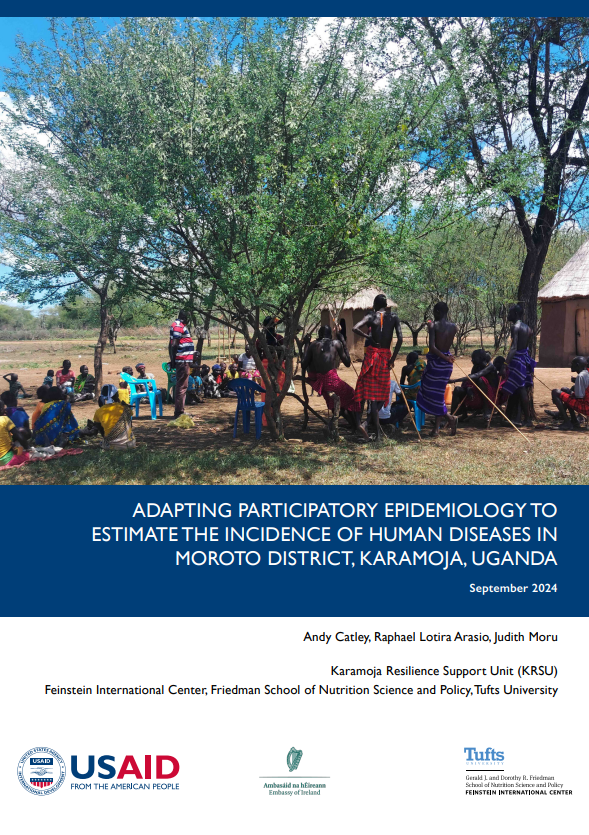
Adapting participatory epidemiology to estimate the incidence of human diseases in Moroto District, Karamoja, Uganda
This study explored the use of participatory epidemiology (PE) to estimate the annual incidences of human diseases in Karamoja, Uganda, with emphasis on diseases associated with water. Adapted PE methods were used successfully to estimate disease incidences in young children and adults, and revealed a rich knowledge on the clinical signs and causes of diseases. The report concludes that PE could be useful for overcoming some of the spatial limitations of the health surveillance system in Karamoja, and the temporal limitations of bi-annual food security and nutrition assessments.
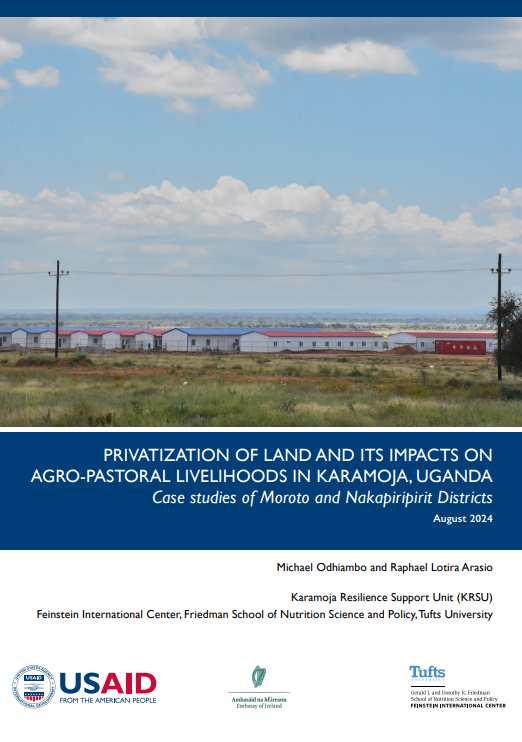
Privatization of Land and its Impacts on Agro-Pastoral Livelihoods in Karamoja, Uganda: Case studies of Moroto and Nakapiripirit Districts
This report presents the findings of a review of land issues in Karamoja, with a particular focus on trends in privatization of communal lands and its impacts on agro-pastoral livelihoods.
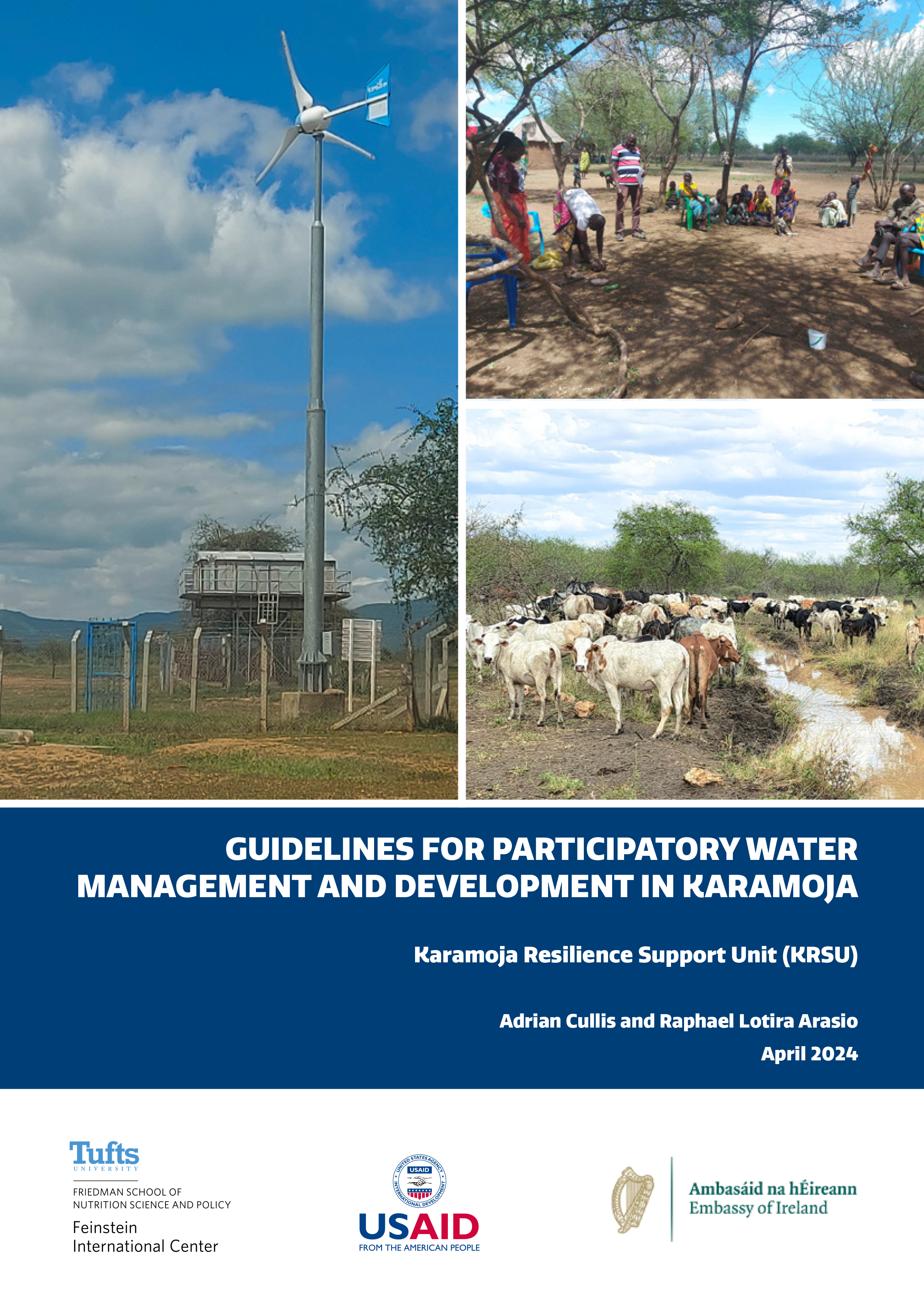
Guidelines for Participatory Water Management and Development in Karamoja
Water resources support key sectors of the economy namely: hydropower generation, agriculture, fisheries, domestic water supply, industry and navigation among others. However, the efficiency and sustainability of water utilization has recently been a concern in Uganda mainly due to inadequate sectoral collaboration in planning and implementation, increasing frequency of floods and droughts, environmental degradation and pollution of water resources.
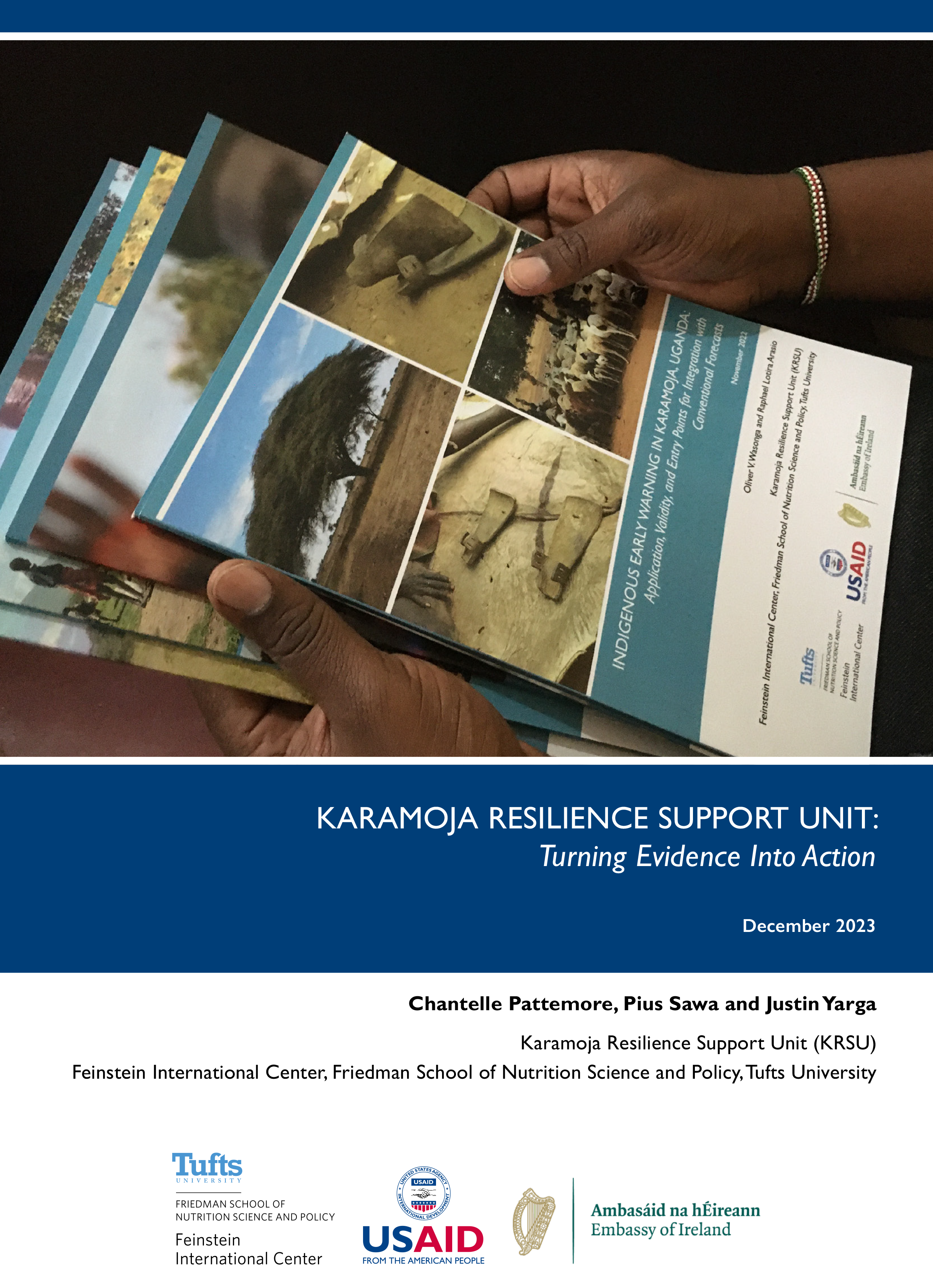
KARAMOJA RESILIENCE SUPPORT UNIT: Turning Evidence Into Action
To gauge understanding of how KRSU’s work benefits and is utilized in Karamoja, a rapid review was conducted in November and December 2023. The review involved face-to-face interviews with a number of the organization’s partners – including non-governmental organizations (NGOs), universities, academics, and donors.
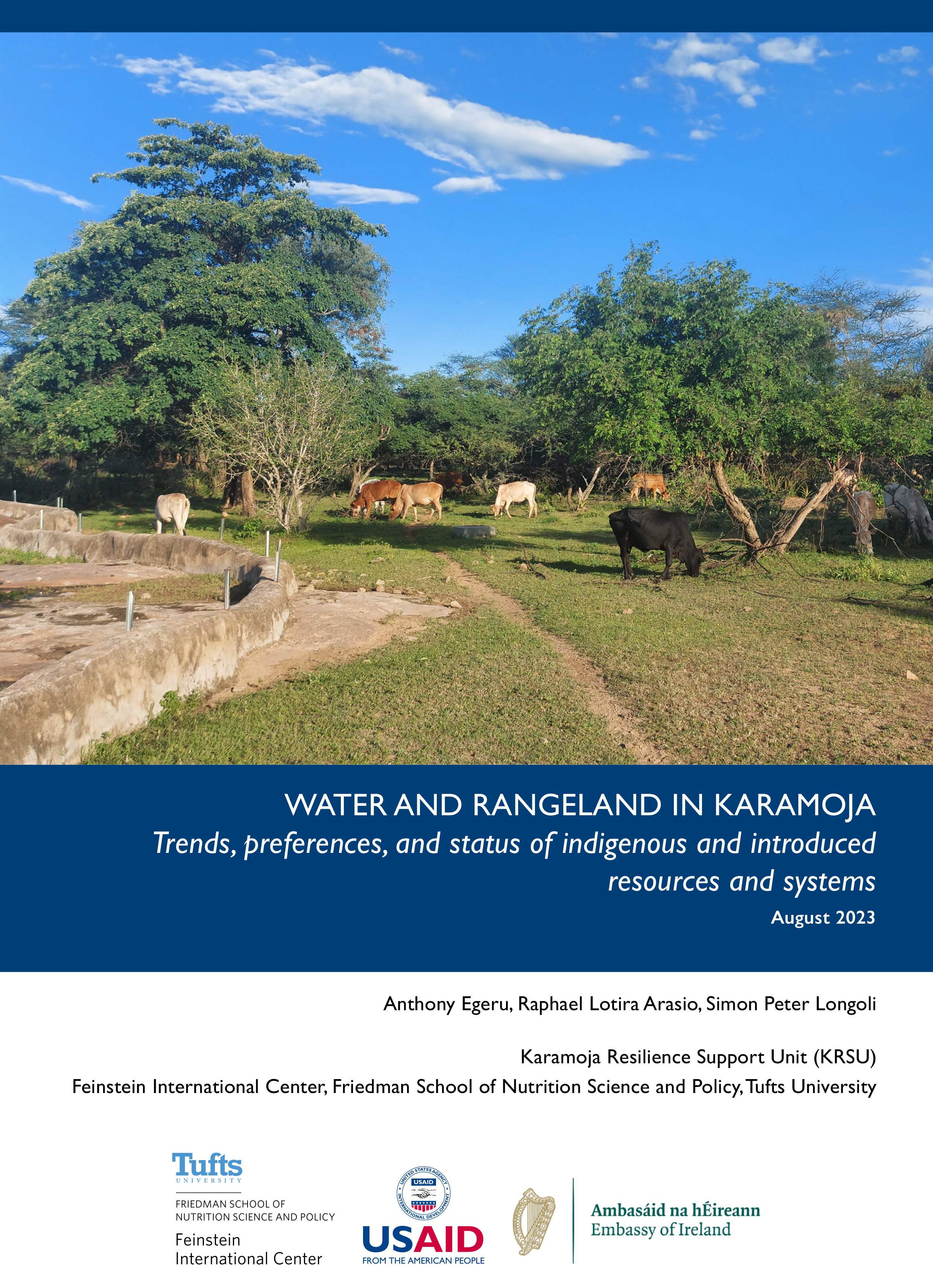
WATER AND RANGELAND IN KARAMOJA
Water and rangeland resources are the basis for livestock production in pastoralist areas of Africa and therefore have major impacts on pastoral livelihoods. Households with insufficient access to water or productive rangeland experience suboptimal herd growth and production, with associated negative impacts on the income and nutritious foods that livestock provide.
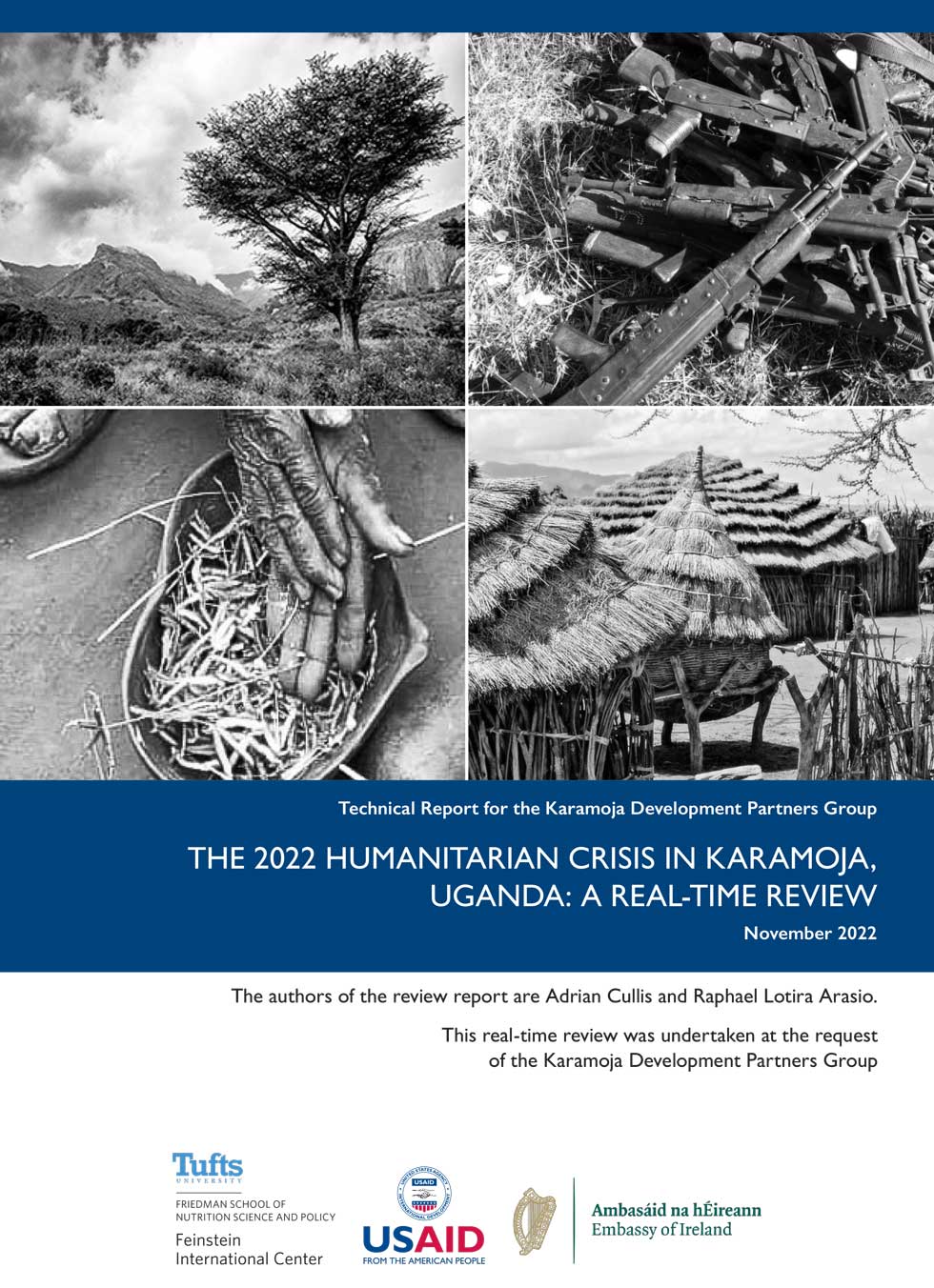
The 2022 Humanitarian Crisis in Karamoja, Uganda: A real-time review
This real-time review aims to document the events that led to Karamoja’s hunger crisis in 2022, the reporting of the worsening situation by early warning systems, and the responses of the Government of Uganda and the international aid community. The review took place from the September 27–October 21, 2022.
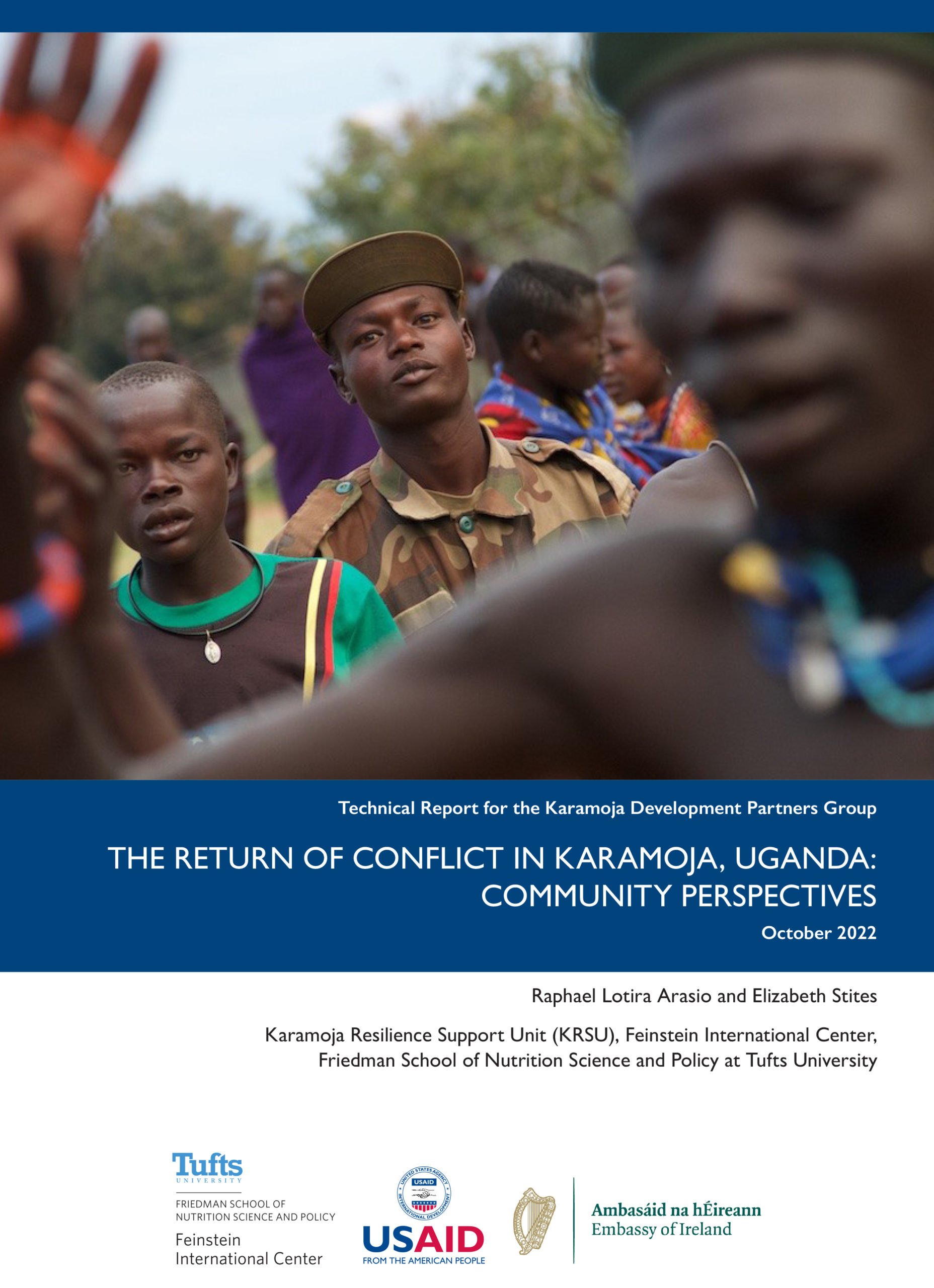
The Return of Conflict in Karamoja, Uganda: Community Perspectives
After nearly 10 years of relative peace, conflict and insecurity returned to the Karamoja sub-region of northeastern Uganda starting in 2019. This assessment investigates this resumption of conflict and insecurity from the perspective of the communities most involved and affected.
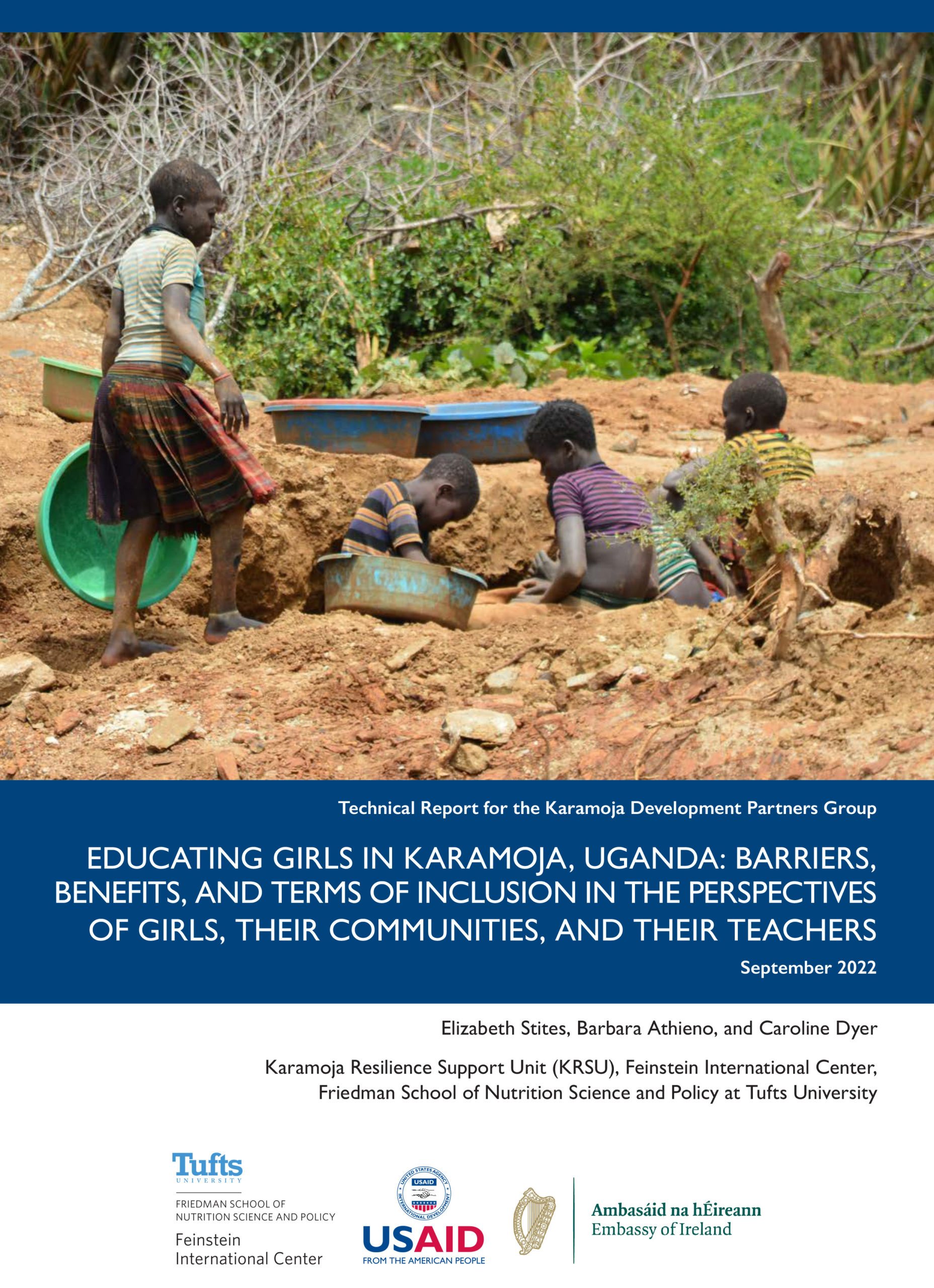
Educating Girls in Karamoja, Uganda: Barriers, Benefits, and Terms of Inclusion in the Perspectives of Girls, their Communities, and their Teachers
This scoping report investigates barriers, benefits, and “terms of inclusion” for girls’ education in the Karamoja sub-region of Uganda. Karamoja has some of the lowest education indicators in the country, with females generally faring much worse than males. The report examines the experiences and perceptions of girls, male and female community members, and teachers about girls’ education in the region, drawing on an assessment that took place from June to August 2022 in 10 sites in four districts: Amudat, Kaabong, Moroto, and Napak.
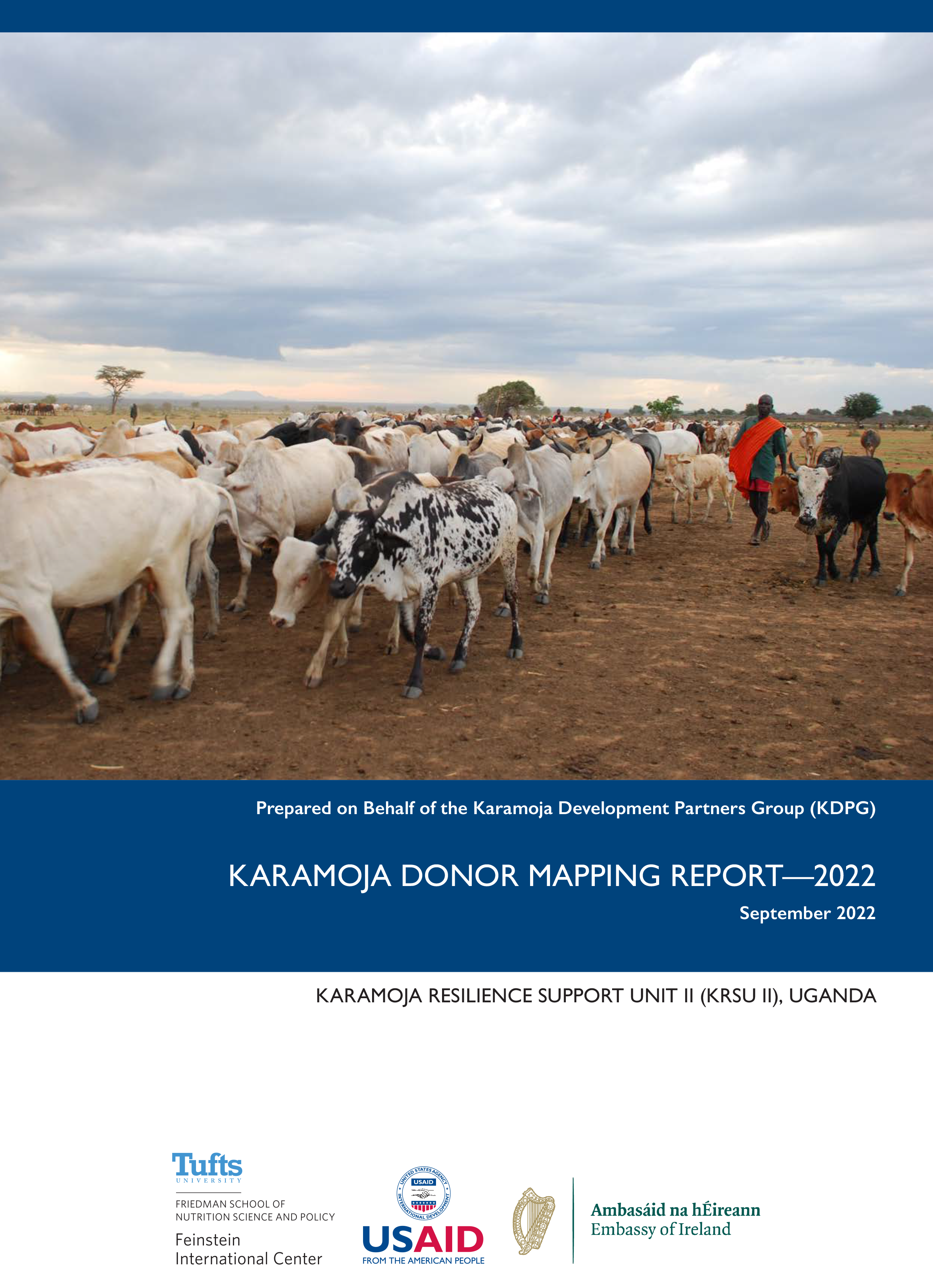
Karamoja Donor Mapping Report
This report summarizes planned humanitarian and development activities of major donors in the Karamoja sub-region
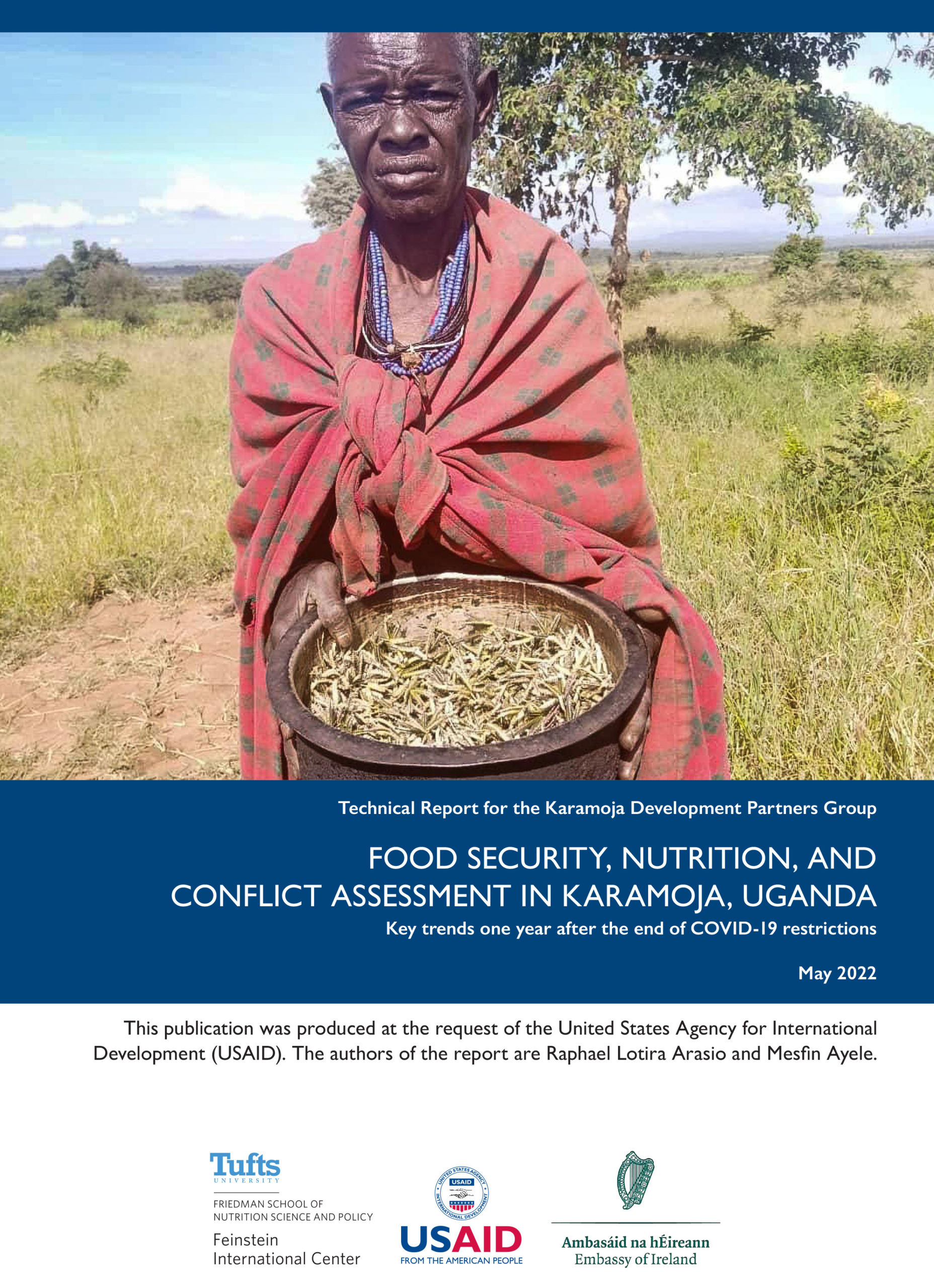
Food Security, Nutrition, and Conflict Assessment in Karamoja, Uganda
In mid-2020, the Karamoja Resilience Support Unit (KRSU) conducted a rapid assessment that described the impact of COVID-19 containment measures on rural livelihoods in Karamoja (Arasio et al. 20201). The assessment also forecast how disease restrictions would affect livelihoods over the following six to eight months (into early 2021). The initial assessment examined household wellbeing during COVID-19 relative to a normal (good) and bad (drought) year in Karamoja’s three main livelihood zones, represented by Amudat District (predominantly pastoralist but with some emerging crop production), Moroto District (predominantly agropastoralist), and Abim District (with high dependence on crop production, but also using livestock).
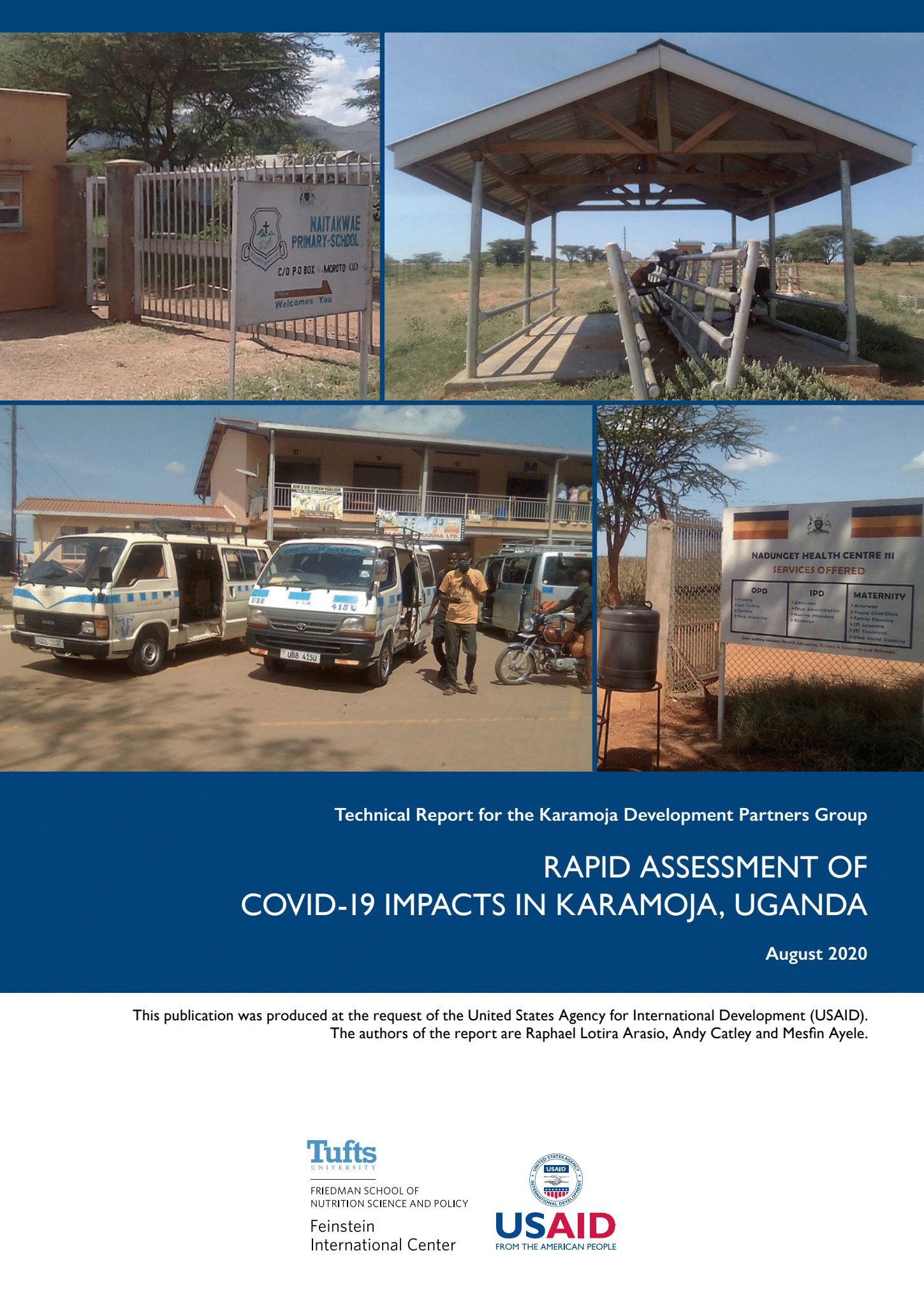
RAPID ASSESSMENT OF COVID-19 IMPACTS IN KARAMOJA, UGANDA
This technical report describes the impacts of coronavirus disease 2019 (COVID-19) restrictions in the Karamoja sub-region of Uganda, based on field assessments in Amudat, Moroto and Abim Districts. The COVID-19 prevention guidelines that prompted total lockdown measures included market closure and travel restrictions which in turn affected the essential economic activities of many households, especially the poor.
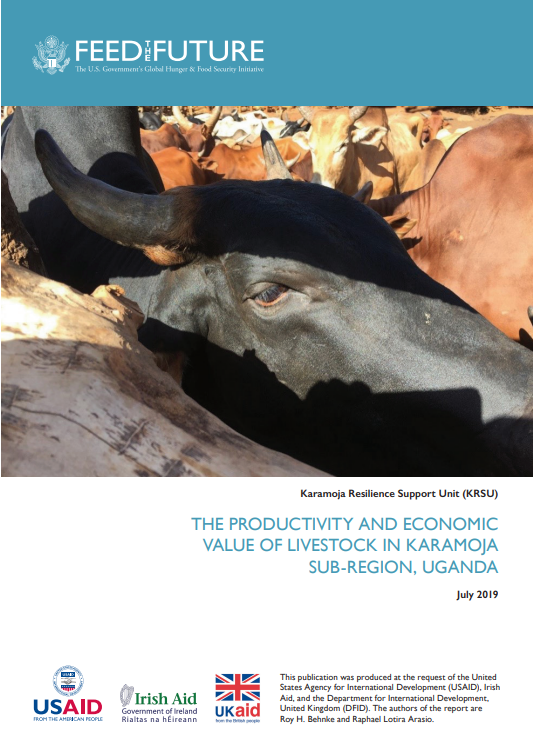
THE PRODUCTIVITY AND ECONOMIC VALUE OF LIVESTOCK IN KARAMOJA SUB-REGION, UGANDA
This report calculates the direct use value of livestock in Karamoja Sub-region, Uganda. The concept of direct use value pulls together under one heading all the various economic benefits derived from livestock.
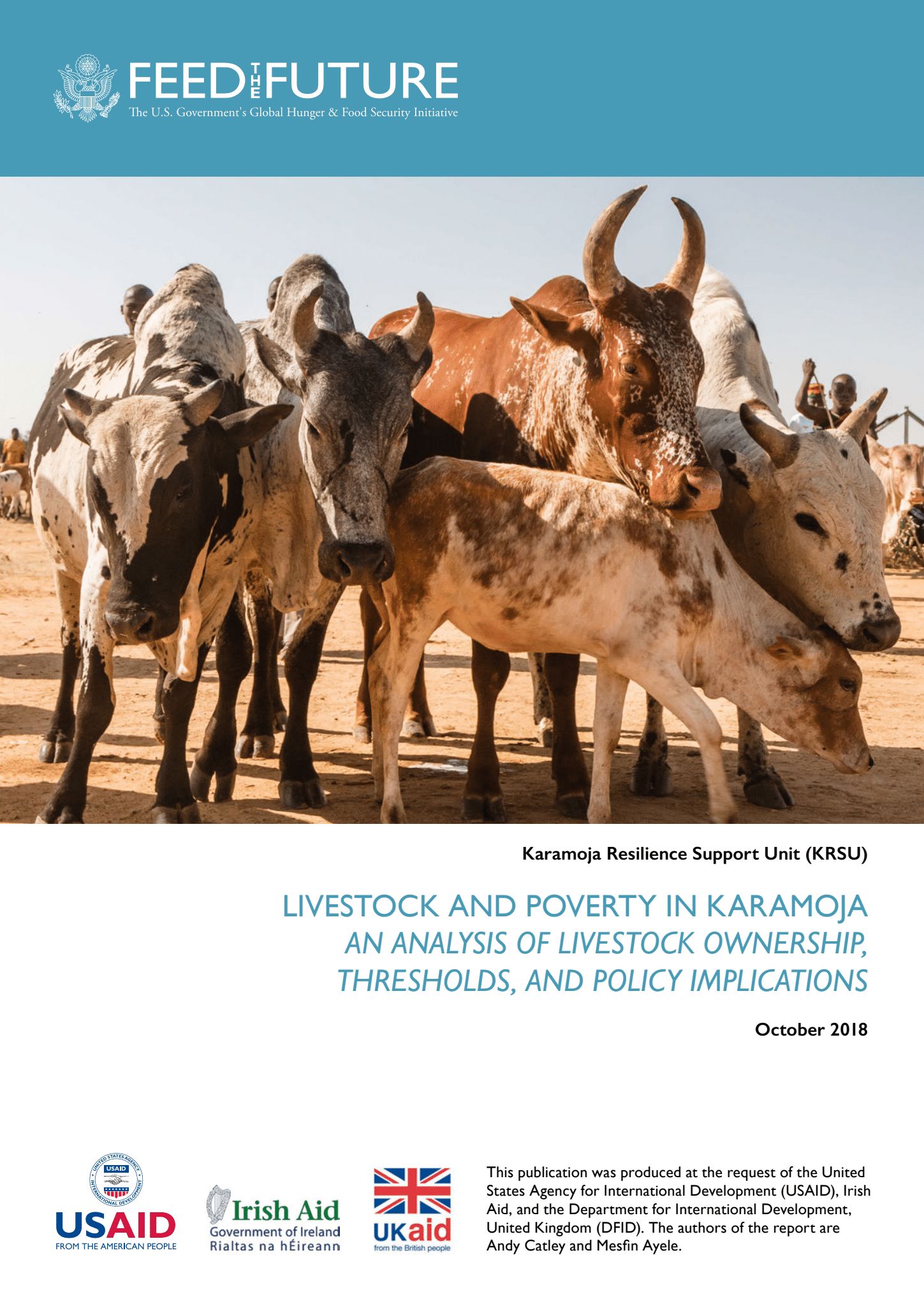
LIVESTOCK AND POVERTY IN KARAMOJA AN ANALYSIS OF LIVESTOCK OWNERSHIP, THRESHOLDS, AND POLICY IMPLICATIONS
In pastoralist and agro-pastoralist households in East Africa, livestock not cash are usually the main financial asset. Animals are sold to buy grain and to meet other domestic needs, and animals also provide food, especially milk, for direct human consumption.
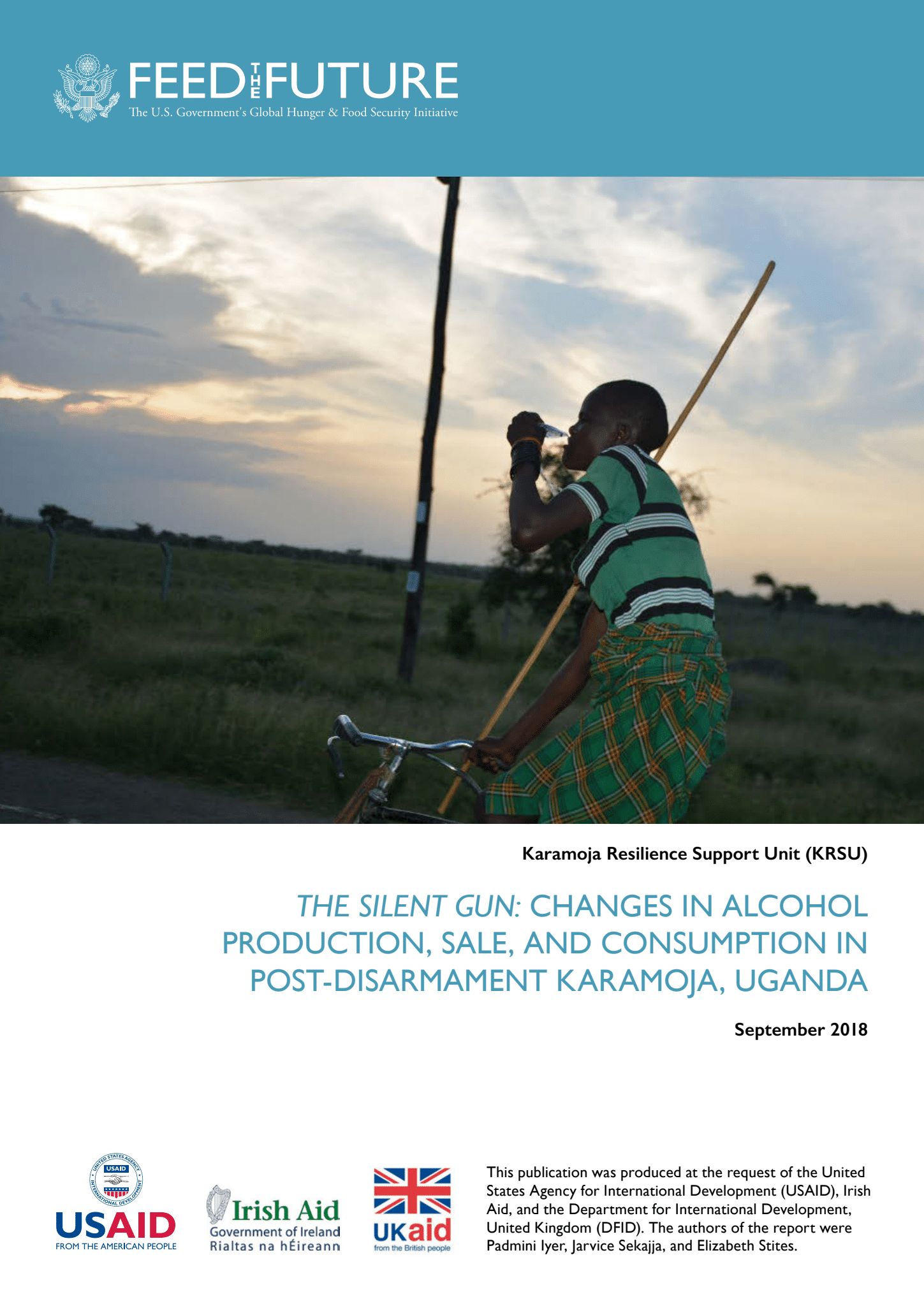
THE SILENT GUN: CHANGES IN ALCOHOL PRODUCTION, SALE, AND CONSUMPTION IN POST-DISARMAMENT KARAMOJA, UGANDA
Research and observations over the past decade have pointed to the high prevalence of alcohol use in Karamoja. Brews made locally of sorghum and maize have sociocultural, nutritional, and economic significance.
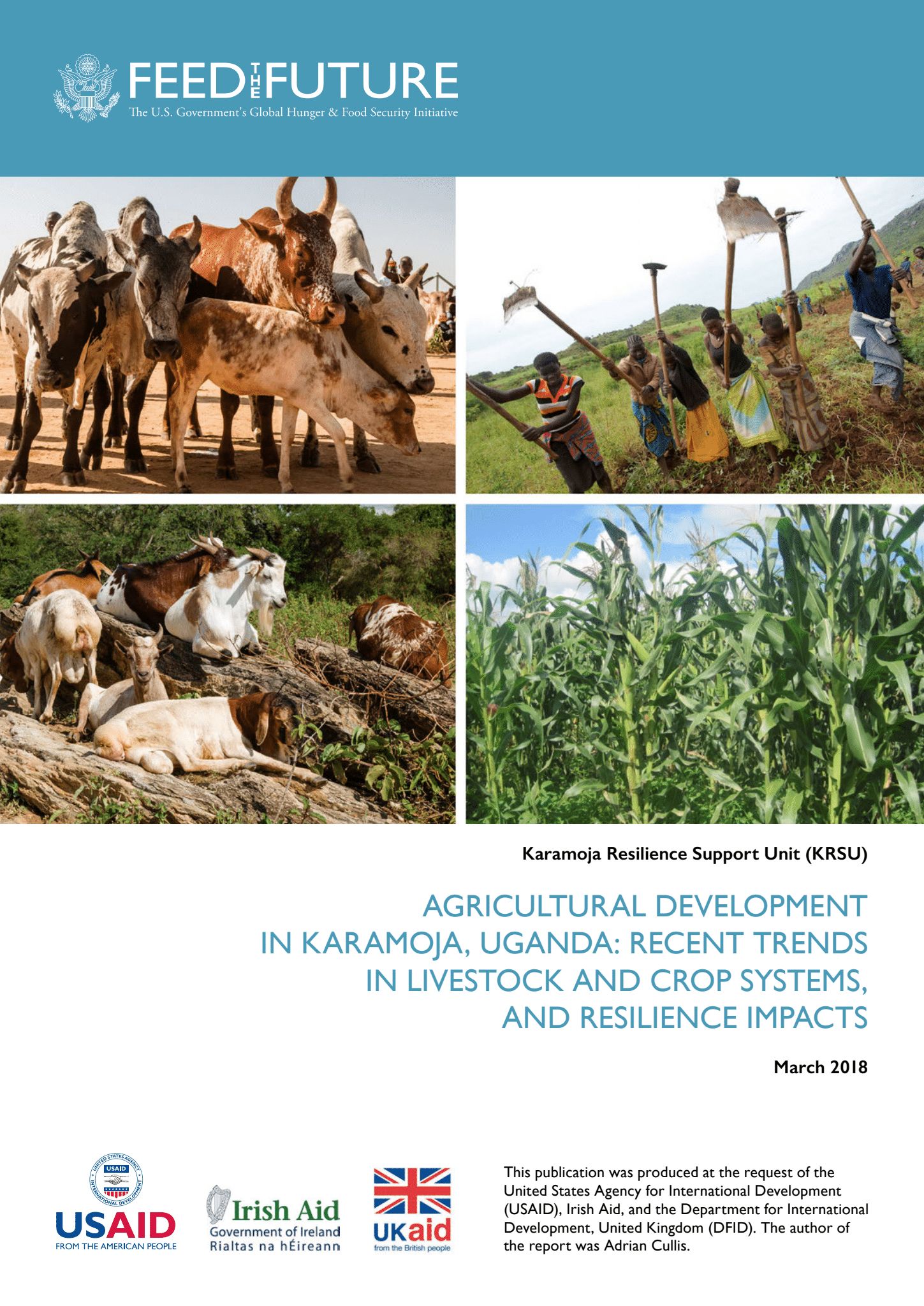
AGRICULTURAL DEVELOPMENT IN KARAMOJA, UGANDA: RECENT TRENDS IN LIVESTOCK AND CROP SYSTEMS, AND RESILIENCE IMPACTS
This report is a review of agricultural development trends in the Karamoja sub-region of northeast Uganda. The review covered both crop farming and transhumance livestock management and examined agriculture at the levels of both policy and programming.
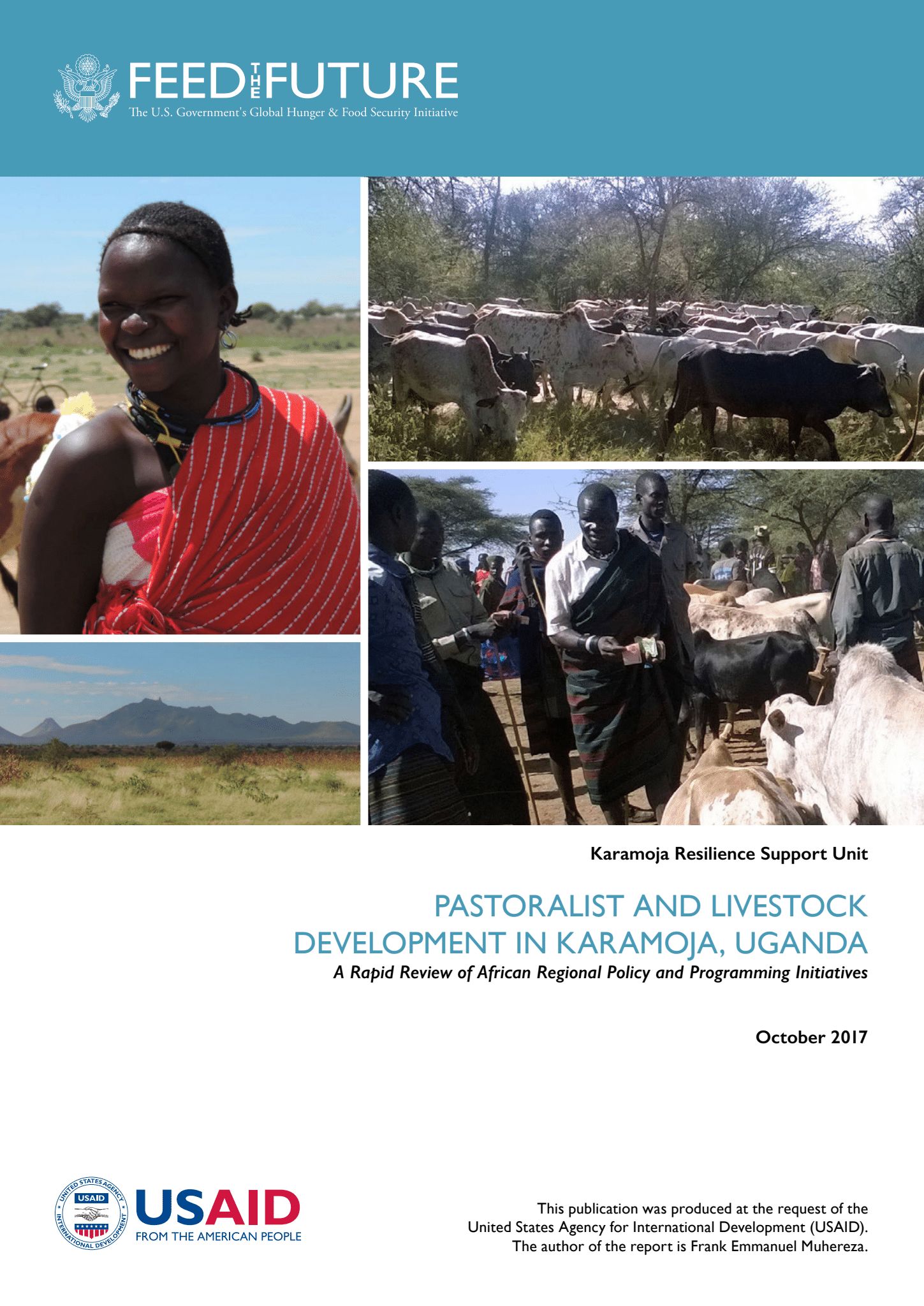
PASTORALIST AND LIVESTOCK DEVELOPMENT IN KARAMOJA, UGANDA
This review examines regional policies and programming initiatives in East Africa and the Horn of Africa related to pastoral areas development, and their relevance to the Karamoja Region of Uganda.
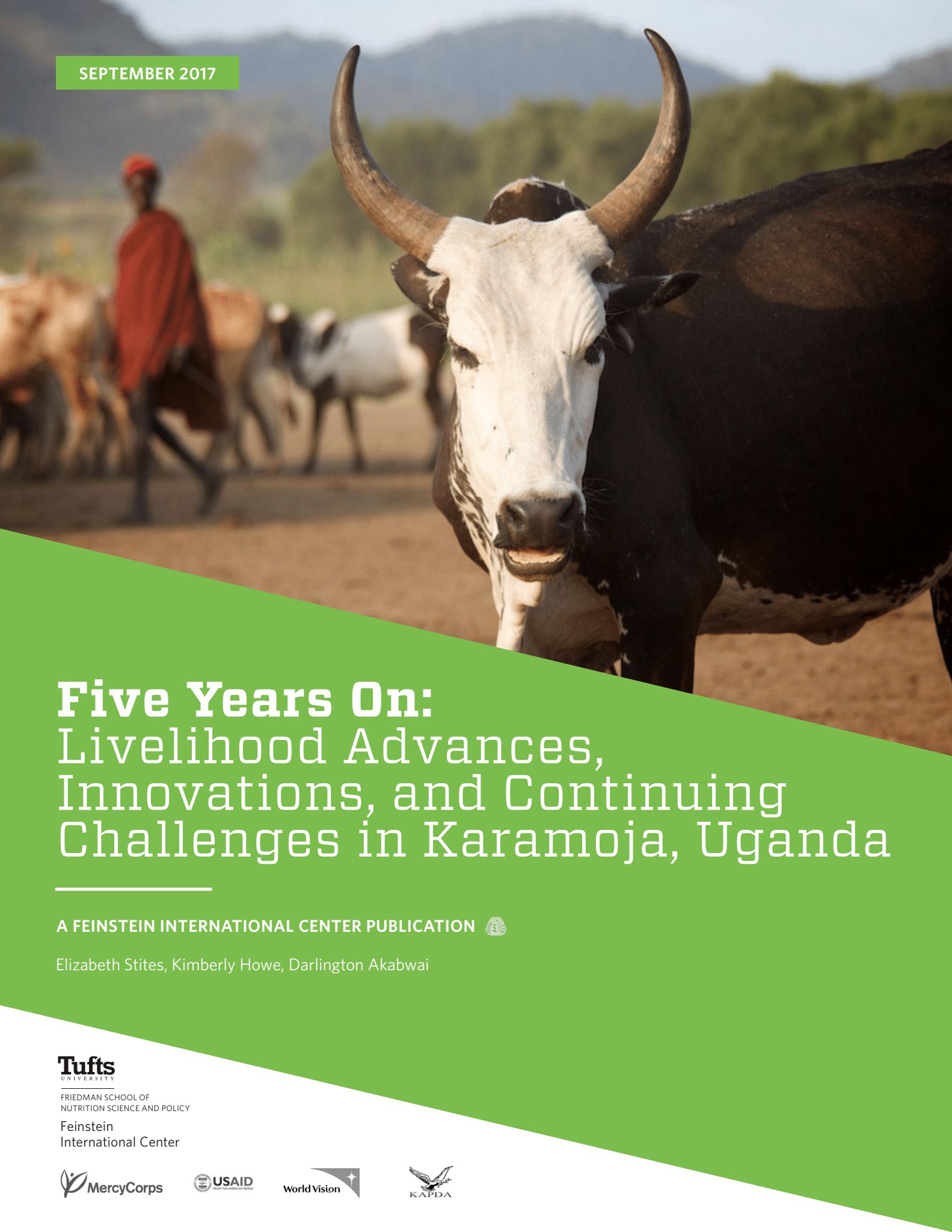
Five Years On: Livelihood Advances, Innovations, and Continuing Challenges in Karamoja, Uganda
A quantitative analysis of a representative group of villages indicates that there has been a widespread increase in the utilization of services as well as improvement to well-being for residents of northern Karamoja since 2013
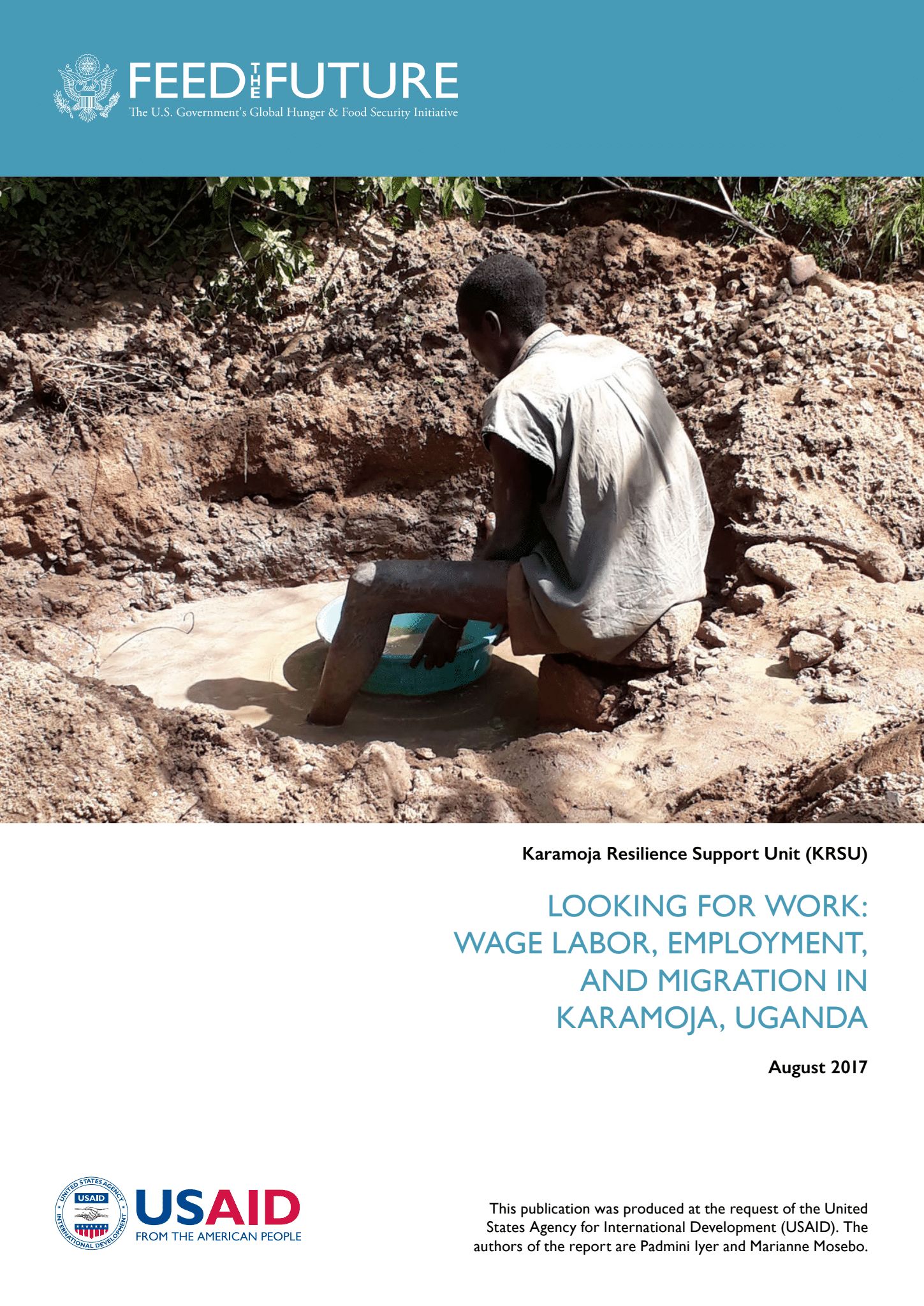
LOOKING FOR WORK: WAGE LABOR, EMPLOYMENT, AND MIGRATION IN KARAMOJA, UGANDA
The main purpose of this assessment is to document and analyze trends in labor and employment in the non-pastoral labor sectors within and outside Karamoja, and to investigate how individual- and macrolevel factors influence participation in the labor market.
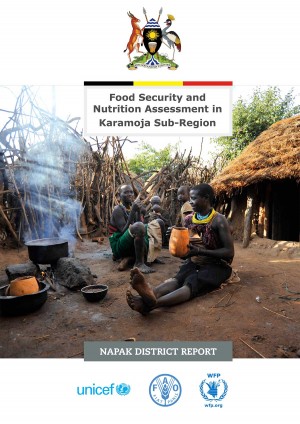
Food Security and Nutrition Assessment in Karamoja Sub-Region – Napak District Report
Napak is one of the districts in the Karamoja sub-region faced with chronic food insecurity coupled with high levels of malnutrition that are of public health concern.
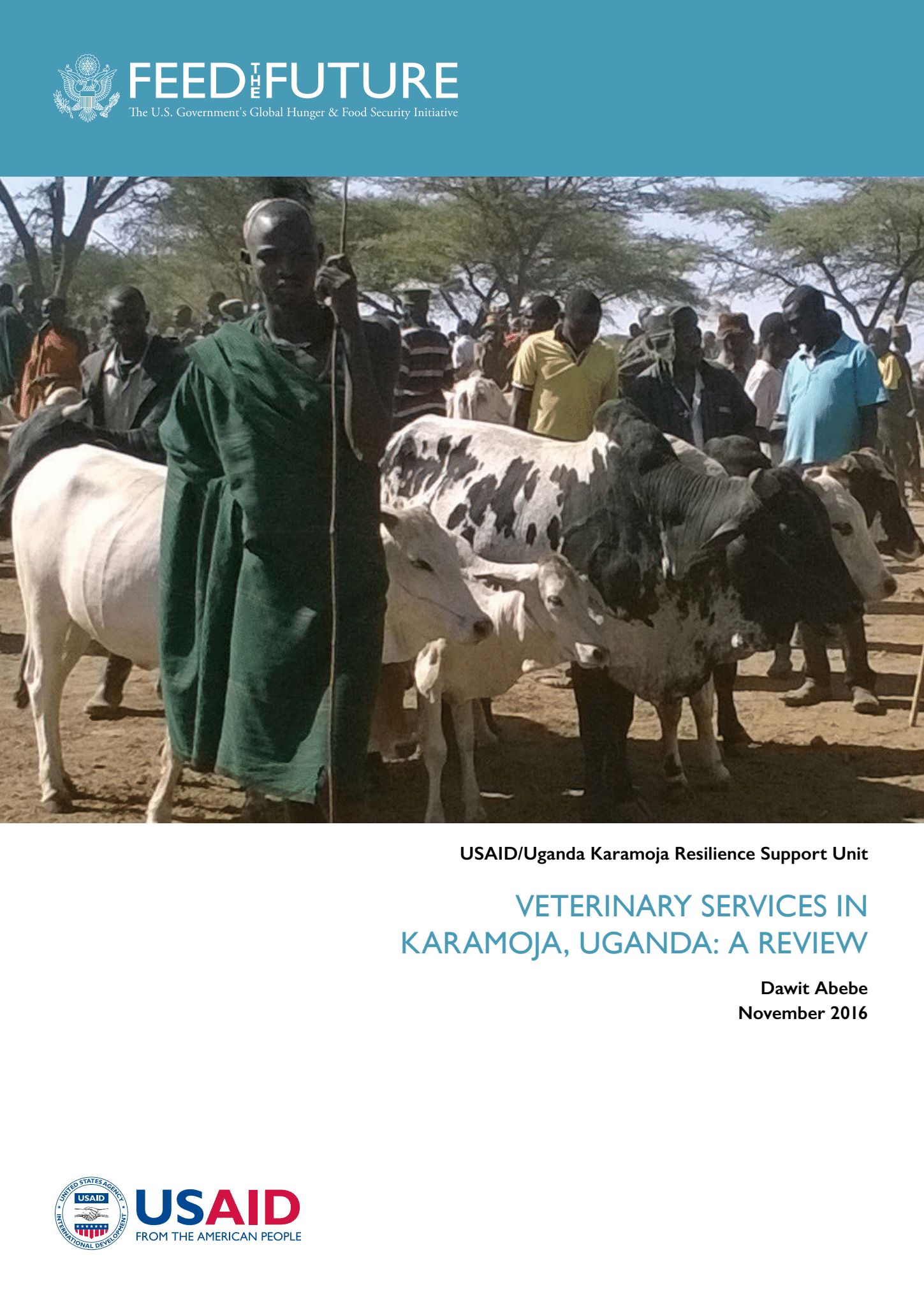
VETERINARY SERVICES IN KARAMOJA, UGANDA: A REVIEW
This aim of this report is to document the experiences of veterinary service delivery in Karamoja and draw lessons to guide a strategy for future service provision, aligned to Uganda’s animal health policies and legislation.
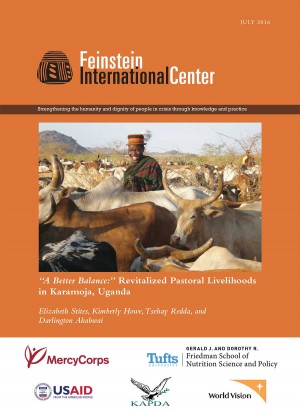
A Better Balance: Revitalized Pastoral Livelihoods in Karamoja, Uganda
Livelihoods in Karamoja continue to change as security improves; this includes a revitalization of pastoral production for some households. This report details the findings from research undertaken in February and March 2016 in four districts of Karamoja aimed at better understanding the current patterns of pastoral and agro-pastoral production in the region.
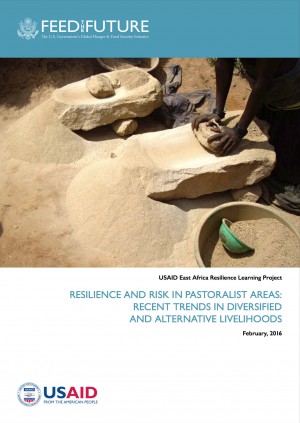
Livelihood diversification trends, risks, and programming implications
This study explored recent trends in diversification by East African pastoralists, the factors that drive their choices, and the potential short and longer-term consequences of their decisions. It considered the risks and costs of diversified and alternative livelihoods, as well as the benefits. The report presents findings from three case studies from Karamoja in northeastern Uganda, the Borana region of southern Ethiopia, and the Garissa District of northeastern Kenya. It includes policy recommendations regarding land tenure, local value addition around livestock production, and investments in sustainable natural products, local infrastructure, and urban/peri-urban planning. Further recommendations address nutritional issues, the promotion of regional trade, and growing demands for education, training, and business development skills.
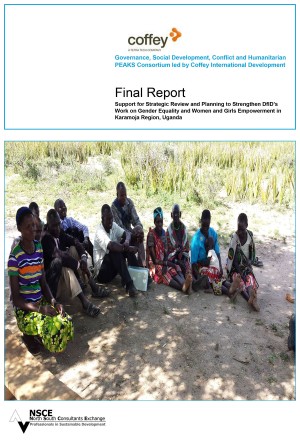
Final Report – Support for Strategic Review and Planning to Strengthen DfID’s Work on Gender Equality and Women and Girls Empowerment in Karamoja Region, Uganda
The purpose of the review is to strengthen gender equality and women’s and girl’s empowerment. DFID wishes to assess its work to date, in relation to the dynamic and changing social circumstances in the Karamoja, and in relation to inputs by other donors and organisations.
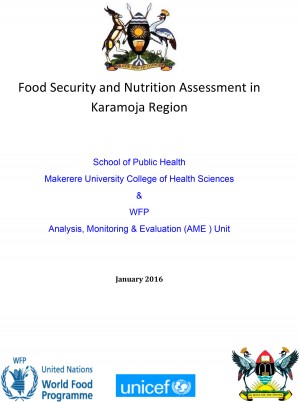
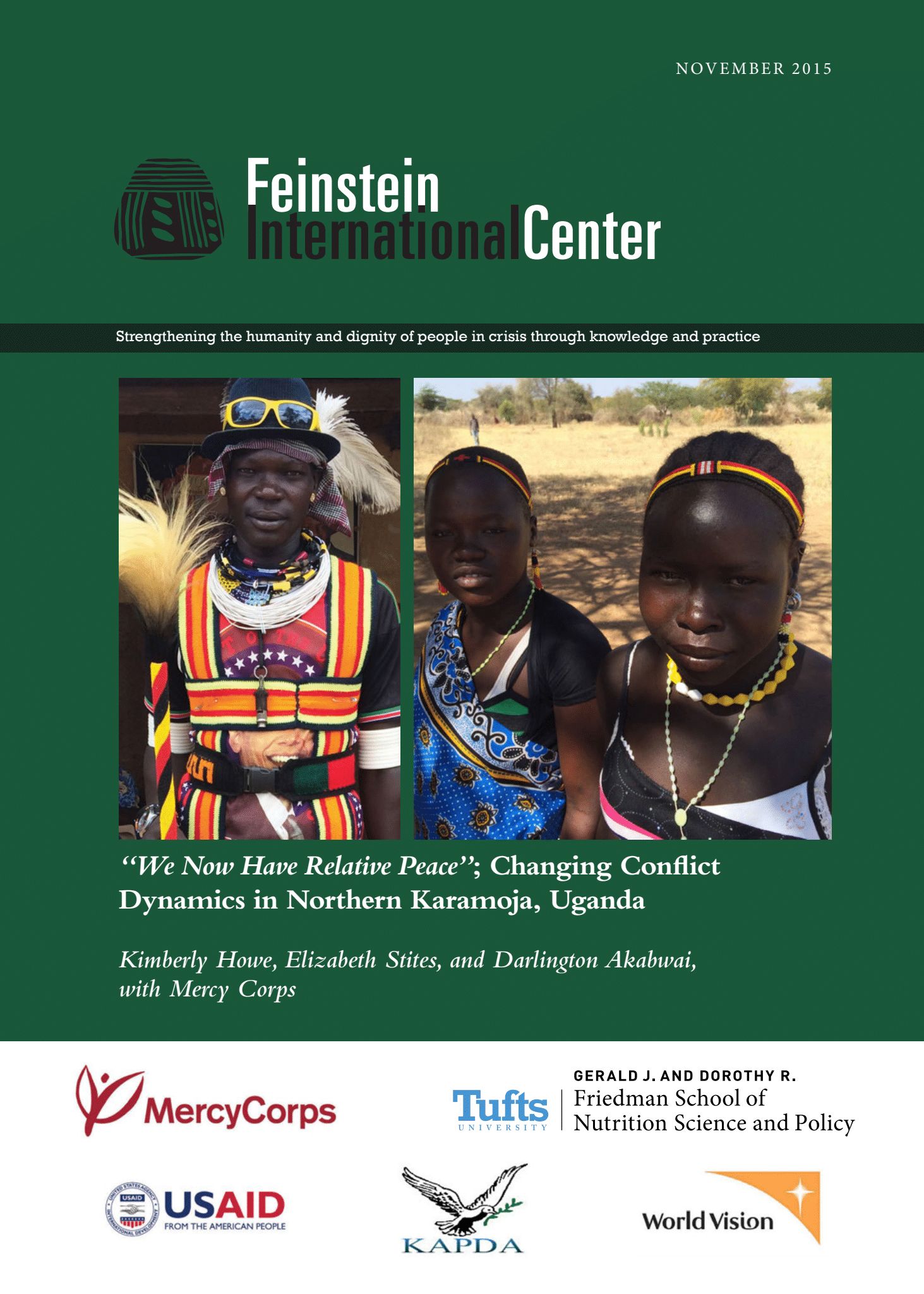
“We Now Have Relative Peace” ; Changing Conflict Dynamics in Northern Karamoja, Uganda
The objective of the study was to provide a nuanced understanding of the current threats to security at the household, community, district and regional levels, and to examine how these dynamics have changed in recent years.
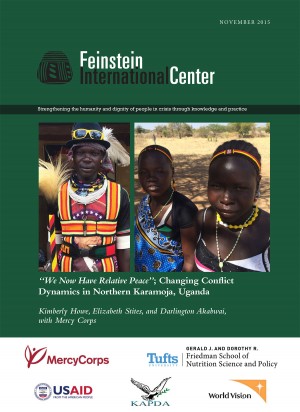
“We Now Have Relative Peace”; Changing Conflict Dynamics in Northern Karamoja, Uganda
This report reflects research from early 2015 conducted by the Feinstein International Center at the Friedman School of Tufts University and Mercy Corps in northern Karamoja, Uganda. The research examined changing conflict dynamics and related conflict mitigation and peacebuilding initiatives. The objective of the study was to provide a nuanced understanding of the current threats to security at the household, community, district and regional levels, and to examine how these dynamics have changed in recent years. The study examined conflict mitigation initiatives, including access to and efficacy of these systems.
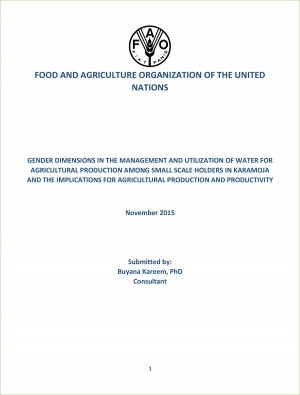
Gender Dimensions In The Management And Utilization Of Water For Agricultural Production Among Small Scale Holders In Karamoja And The Implications For Agricultural Production And Productivity
The report presents desk review findings on the gender dimensions of water for agricultural production, with a focus on Karamoja sub-region in northeastern Uganda, under four thematic areas: i) the gender dimensions of leadership and technical roles at community level; ii) gender considerations in construction, repair and mantainence of water facilities; iii) gender roles in the use of water for agricultural production and productivity; and iv) the implications for agricultural production and productivity. The report seeks to inform the implementation of FAO’s Gender Equality Policy (2013).
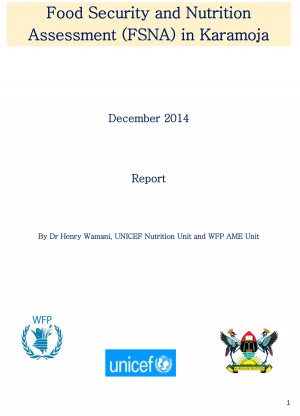
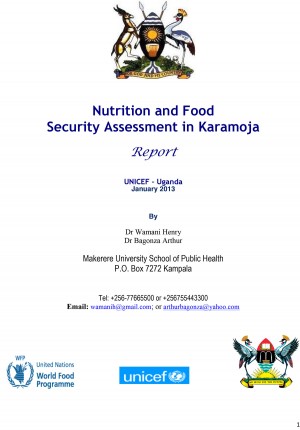
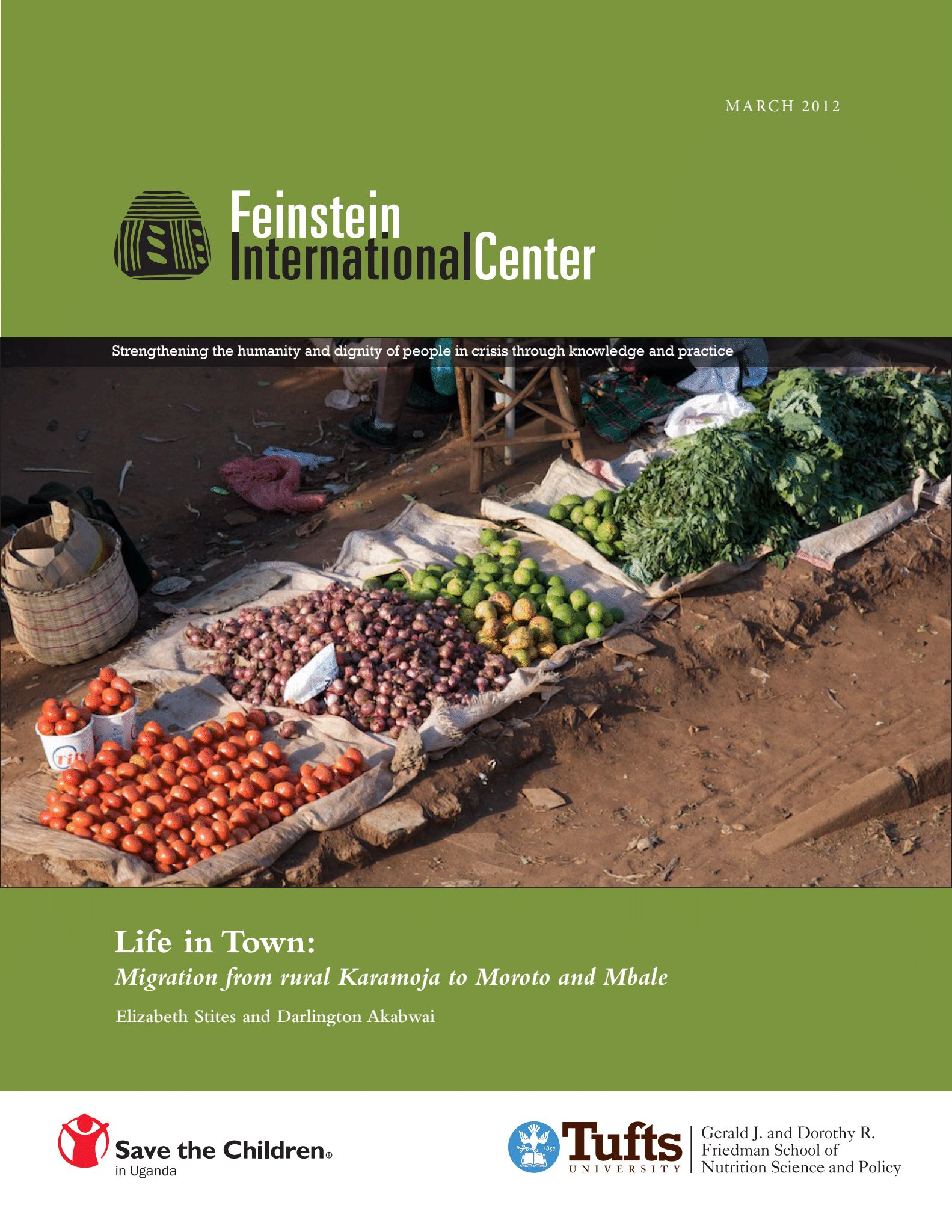
Life in Town: Migration from rural Karamoja to Moroto and Mbale
The phenomenon of out-migration from Karamoja is well known and widely discussed both by rural residents in the region and by officials in receiving cities
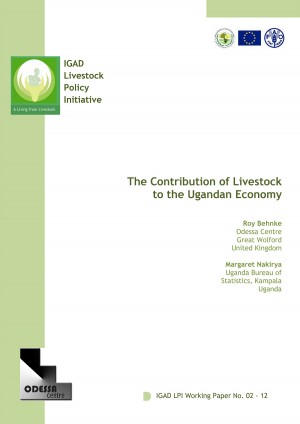
The Contribution of Livestock to the Ugandan Economy
This is the fifth in a series of reports on the contribution of livestock to the economies of the IGAD member states. Building on methodologies developed in earlier studies of the role of livestock in the economies of Ethiopia, Kenya and Sudan, the present report undertakes an assessment of the contribution of livestock to Uganda’s national economy.
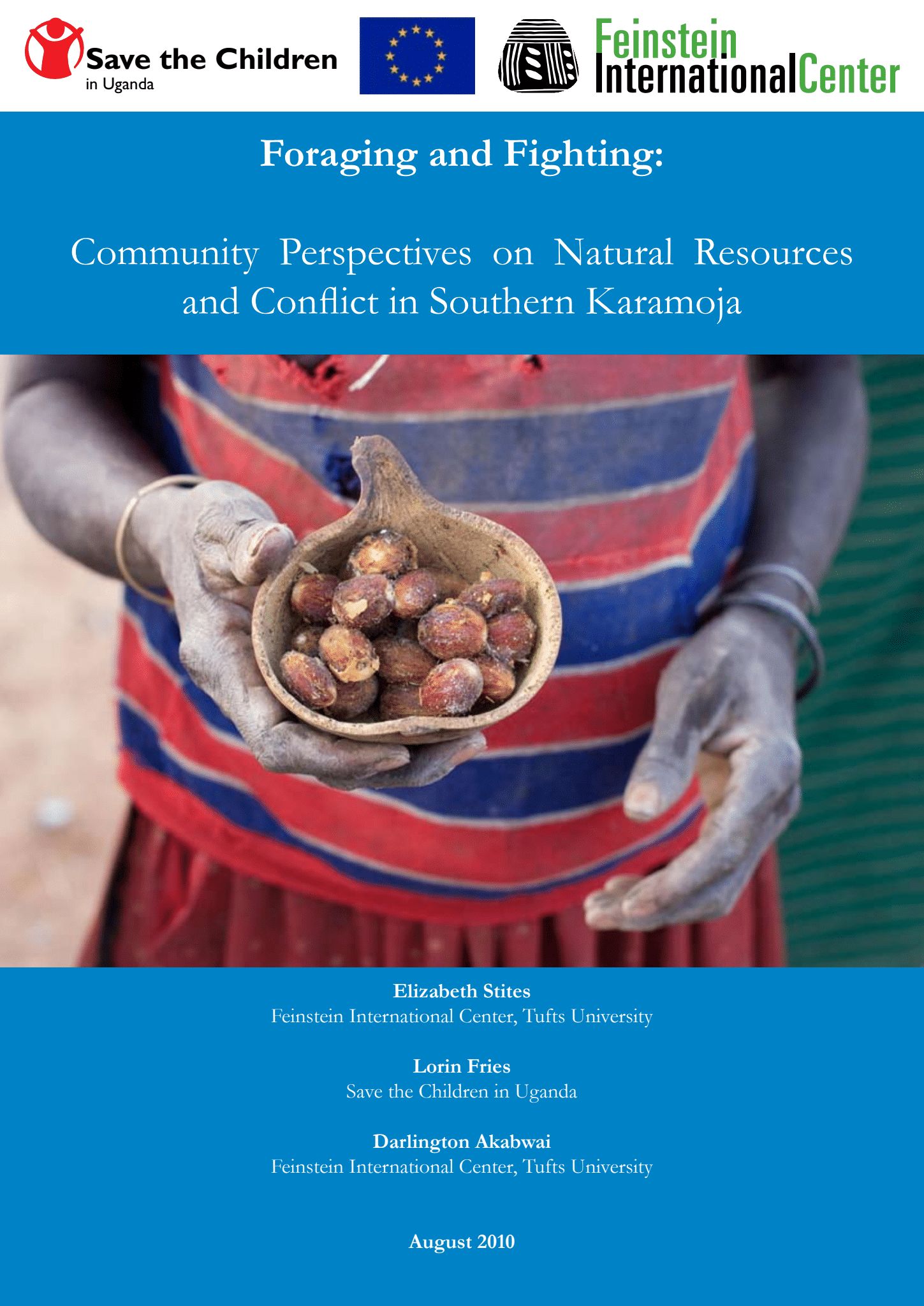
Foraging and Fighting: Community Perspectives on Natural Resources and Conflict in Southern Karamoja
In our research in Karamoja since 2005, respondents often discuss problems with natural resource access and availability, and with comparable frequency they describe conflict with neighboring or nearby groups who are also accessing natural resources.
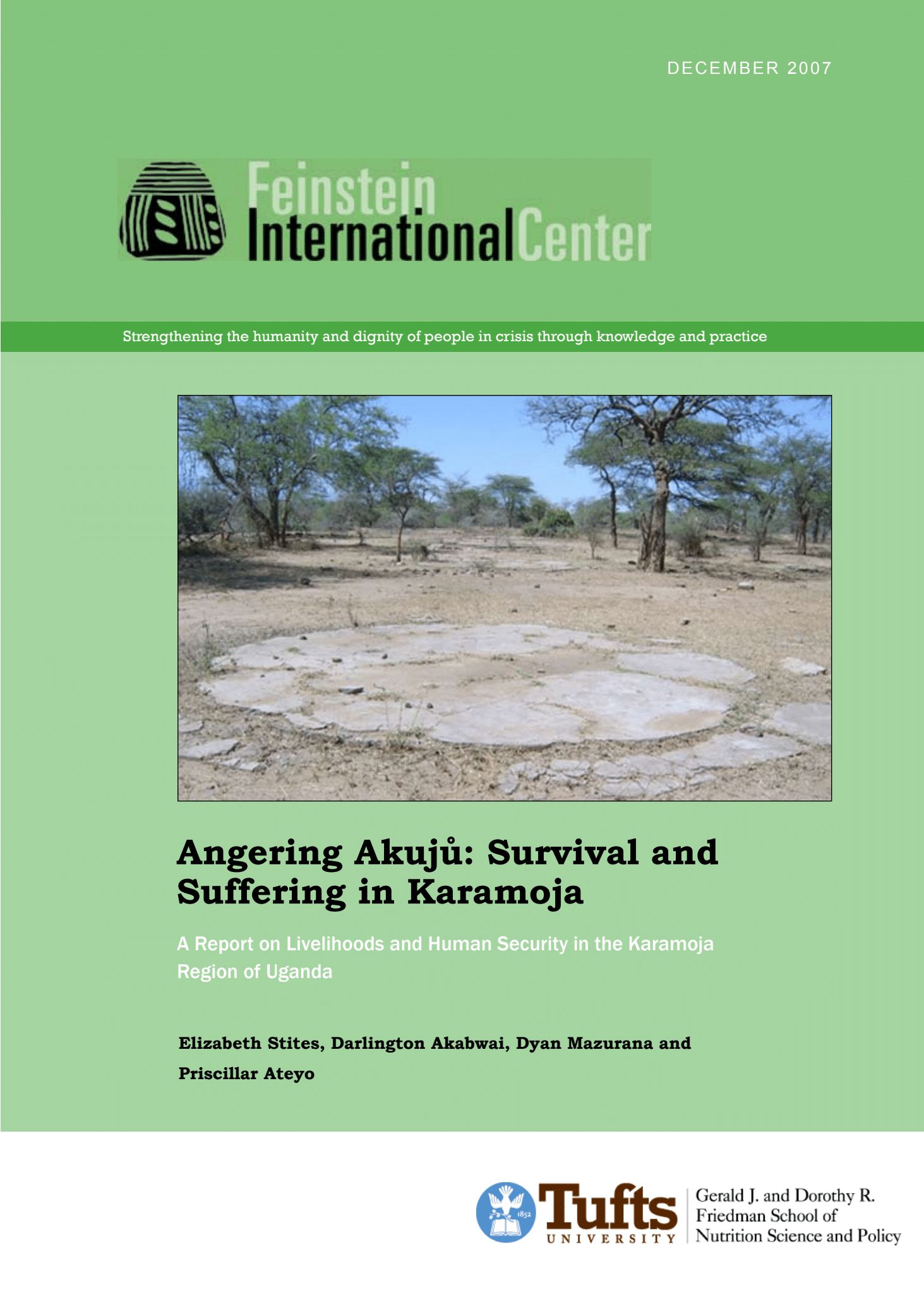
Angering Akujů: Survival and Suffering in Karamoja
A Report on Livelihoods and Human Security in the Karamoja Region of Uganda